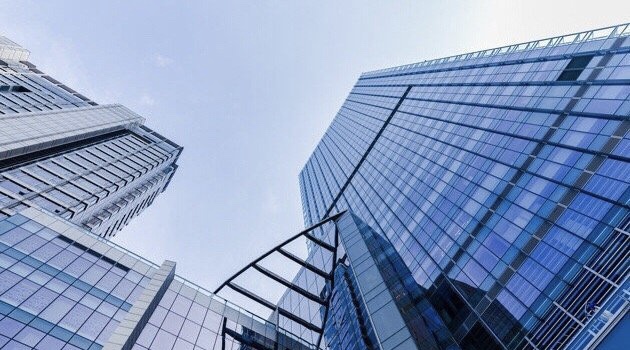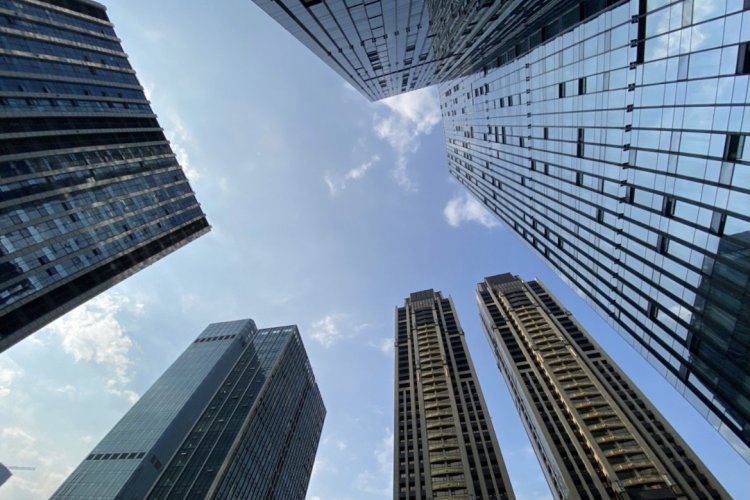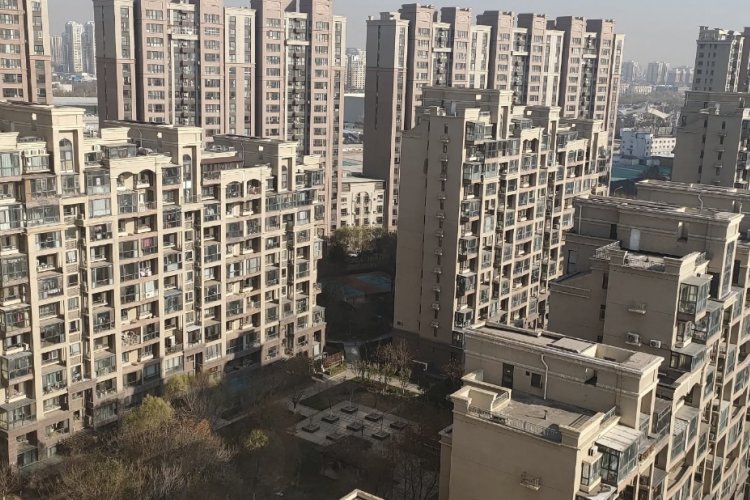Why Are Beijing Rental Prices So High?
Beijing topped the most expensive places for people to rent apartments last year, according to data from the Economic Daily, with apartments averaging a cost of RMB 87 per square meter.
These high prices have left many people to wonder: why are rents in Beijing so high?
The Fact that it's the Capital?
According to the last census in 2021, Beijing has seen an increase of about two million people in the past ten years. The capital's popularity as a place to set down roots has in turn led to higher demand for apartments.
Such demand has caused the city’s rents to continue to steadily rise quite some time. In 2011, you could rent a one-bedroom apartment for around RMB 2300. The cost has nearly doubled over the past decade, meaning you can expect to pay for about RMB 4350 for a 50-square meter apartment today.
One douban user attributes this to the city's status as a first-tier city and home to top universities and jobs:
“Beijing is a first-tier city. It is also home to more than 100 universities, with nearly millions of college graduates. Among them, many choose to stay in the city to make a living. There are also many fresh graduates from nearby cities like Zhengzhou, Xi’an, and Shenyang who are seeking jobs in Beijing. For many Chinese drifters, the capital city tops their list of places to live.”
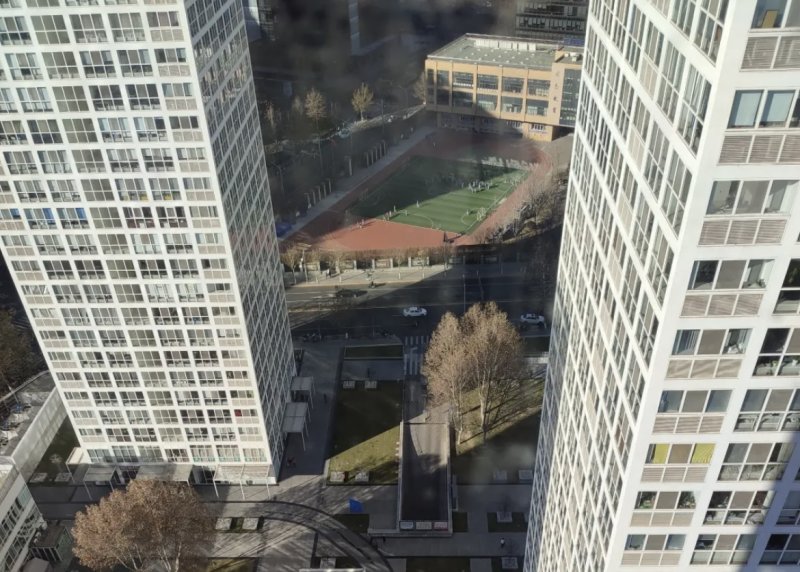
Location, location, location?
Rents can vary from district to district, but the general rule of thumb is houses that are closer to city center are often more expensive. For instance, compared to Dongcheng District, which has some of the most expensive houses, you can get a place twice as big in Tongzhou for the same amount of money you'd spend in the former area.
Why are rents in districts near city center so high? Once again, it boils down to demand.
There are more people who work in the city center, thus more people looking for housing close by. Plus, there are about 2.5 million people living in Dongcheng and Xicheng, which is about twice the population of Tongzhou, however, Tongzhou District is ten times larger than that of Dongcheng and Xicheng combined, which makes Dongcheng and Xicheng populated with too many apartment seekers.
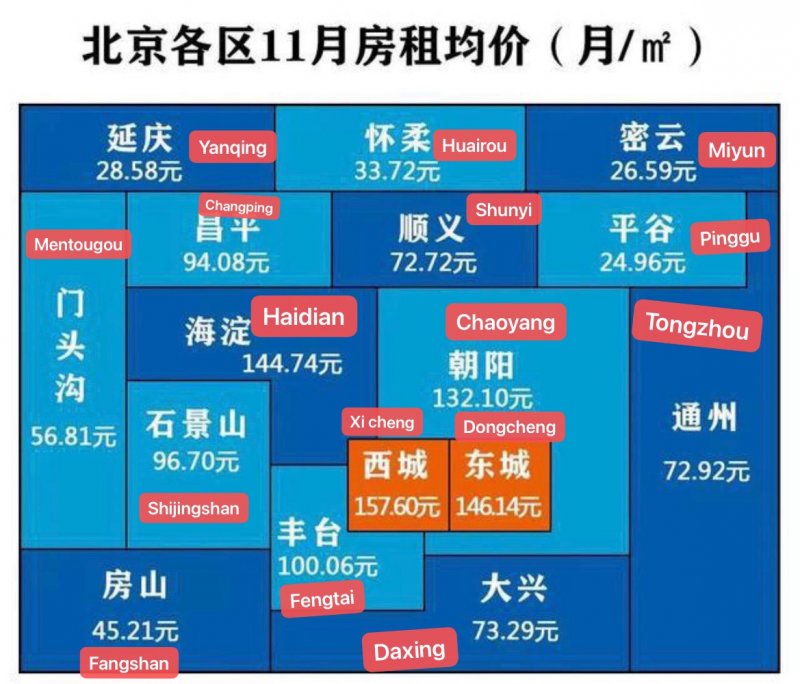
A growing tech industry?
Price differences goes beyond districts and into subdistricts. If you've ever done some apartment hunting in Wangjing, you may have noticed housing prices in the area are considerably higher compared to the rest of Chaoyang District. This is because of a small supply of rental apartments and growing demand for a place to live from tech workers.
Wangjing has become a second CBD of sorts brimming with tech giants like Meituan and Alibaba. Ever since the completion of Wangjing Soho, the area has almost turned into a Chinese version of Silicon Valley, with many new residents working in tech sectors rushing into this area.
In places like Beiwei 40 Degrees, which is only a ten-minute walk away from a number of these big-name tech companies, one can expect to pay about RMB 17,000 for a two-bedroom apartment. The rents are higher because Wangjing is home to many high-tech workers who are paid decently, and they are willing to pay more for housing to live there.

Ever had experiences with crazy rental prices in Beijing? Let us know in the comments!
READ: Four Tips To Avoid Apartment Rental Nightmares in Beijing
Images: China Economic Daily, Weibo

